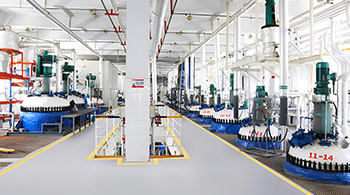
Your location: Home> News> Industry News
News Details

At present, the competition in the global drug market is increasingly fierce, and the cost of new drug research and development is increasing year by year, but the efficiency of new drug research and development has been decreasing year by year. In order to meet shareholders' requirements for financial returns, pharmaceutical companies have pushed cost control and efficiency improvement to a more important strategic position. In such an environment, the development trend of the industrial chain that emphasizes the division of labor and the concentration of resources in its own core business has gradually become clear. Professional service outsourcing companies have emerged to provide corresponding support in all aspects of the company.
Under the wave of economic globalization, pharmaceutical outsourcing is the best choice for pharmaceutical giants. Outsourcing can enable them to concentrate on their core business, utilize external resources and technologies, accelerate the speed of product launch, control costs, and improve cost-effectiveness. According to different service stages, pharmaceutical outsourcing companies are generally divided into pharmaceutical R&D outsourcing CRO companies and pharmaceutical contract processing outsourcing CMO companies.
1. What is pharmaceutical R&D outsourcing and contract organization outsourcing
Pharmaceutical CRO (Contract Research Organization) companies focus on the synthesis of small batches of new drug compounds in the laboratory stage, preclinical research such as pharmacokinetics, pharmacology and toxicology, animal models, etc., as well as various clinical trial services, the purpose of which is through contracts. A professional company that provides new drug clinical research services to pharmaceutical companies. Medicilon is a preclinical drug R&D outsourcing service company (CRO), which has established a compound synthesis, compound activity screening, structural biology, pharmacodynamic evaluation, pharmacokinetic evaluation, toxicology evaluation, formulation research in Shanghai. It is a comprehensive technical service platform that meets international standards and is recognized by the international drug administration.
Pharmaceutical CMO (Contract Manufacture Organization) is contract processing outsourcing. It is mainly entrusted by pharmaceutical companies to provide process development, formula development, clinical trial drugs, chemical or biosynthetic API production, intermediate manufacturing, Preparation production (such as powder, injection) and packaging services. In recent years, large pharmaceutical companies often outsource some aspects of drug R&D and production to CMO companies to improve their operating efficiency, reduce operating costs, and diversify R&D risks. In addition, the rise of small and medium-sized new drug R&D companies has further stimulated the growth of outsourcing demand.
The difference between CRO and CMO in pharmaceutical R&D
2. Industry dynamics of CRO and CMO
(1) Competition from generic drug companies, patent expiry, and increasingly frequent and stringent FDA review, these factors have increased the pressure on drug development companies, so efficiency is far more important than ever before. The pharmaceutical and biopharmaceutical industries are no longer solely engaged in drug development, and R&D spending is decreasing year by year, but the number is increasing. These funds are increasingly distributed among numerous CROs. Newly industrialized countries represented by China are gradually favored by multinational pharmaceutical giants due to their relatively low costs in technology, talent, logistics and laboratory maintenance. These multinational pharmaceutical companies have set up R&D centers in emerging industrial areas such as China. At the same time, world-renowned pharmaceutical R&D service providers have set up branches in China one after another. Pharmaceutical R&D services are also gradually shifting from mature North American and European markets to these emerging markets, of which China has become an important destination for market transfer.
(2) At present, the industrial forms of CMO companies mainly include the following:
One is some enterprises with low R&D and technical level. They are mainly engaged in simple entrusted processing business, and their main products are OEM production of bulk APIs and intermediates. In addition, some enterprises do not have complete cGMP. Quality system and EHS comprehensive management capabilities, so they will also be engaged in the production of non-cGMP intermediates; such products tend to have low added value, and due to low barriers to entry in this field, competition is fierce, and gross profit margins are relatively low.
Another type is that the company can produce APIs based on the process route provided by the entrusting party. This model requires the company to establish a production line that conforms to the cGMP quality system and to be familiar with the relevant laws and regulations of international drug registration. However, because the company does not master the drug The core technology of production, so the bargaining power of downstream enterprises is not strong.
Compared with the first two types of enterprises, the third type of enterprises not only have a complete cGMP quality system and comprehensive EHS management capabilities, but also have strong independent innovation capabilities, and can innovate through drug synthesis routes and process optimization, and drug synthesis reaction technology means. and other methods to reduce the production cost of drugs and reduce pollution, mainly serving various blockbuster drugs including innovative drugs. In addition, such enterprises can also be engaged in the production of innovative drugs in the clinical stage, and provide services and preparations from the clinical stage, stage, and stage of drug process research and development. Comparing these three types of companies, CMO companies serving innovative drugs have larger profit margins and less competition, but they also require companies to have a high level of R&D and technology, as well as a certain amount of talent, customers and project resources. .